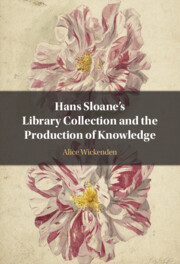Book contents
- Hans Sloane’s Library Collection and the Production of Knowledge
- Hans Sloane’s Library Collection and the Production of Knowledge
- Copyright page
- Contents
- Illustrations
- Tables
- Acknowledgements
- Introduction
- Chapter 1 Hans Sloane’s Library
- Chapter 2 Plants and/as Books
- Chapter 3 Repeating Books
- Chapter 4 Unreadable Books
- Chapter 5 Image Books
- Conclusion
- Appendices
- Bibliography
- Index
Chapter 4 - Unreadable Books
False and Foreign Languages
Published online by Cambridge University Press: 20 November 2025
- Hans Sloane’s Library Collection and the Production of Knowledge
- Hans Sloane’s Library Collection and the Production of Knowledge
- Copyright page
- Contents
- Illustrations
- Tables
- Acknowledgements
- Introduction
- Chapter 1 Hans Sloane’s Library
- Chapter 2 Plants and/as Books
- Chapter 3 Repeating Books
- Chapter 4 Unreadable Books
- Chapter 5 Image Books
- Conclusion
- Appendices
- Bibliography
- Index
Summary
This chapter focuses on foreign language books and asks what it means to own books that can’t be read. It analyses the difference between a book that a given individual can’t read and a book which nobody can read. It argues that Sloane did not just collect books in foreign languages as curios, but that there was a value given to the potential knowledge contained in them, regardless of his ability to access it. It looks at the presentation of polyglot books such as dictionaries and grammars, which have a ‘framing language’ that is very often Latin – suggesting their intended audience – and compares them with monolingual books. It expands this to include the seventeenth-century desire to construct an ‘ideal language’ and the creation of fictional languages by Thomas More and George Psalmanazaar, arguing that the collection created a context in which all languages were smaller pieces of a larger whole.
Keywords
Information
- Type
- Chapter
- Information
- Hans Sloane's Library Collection and the Production of Knowledge , pp. 131 - 167Publisher: Cambridge University PressPrint publication year: 2025
